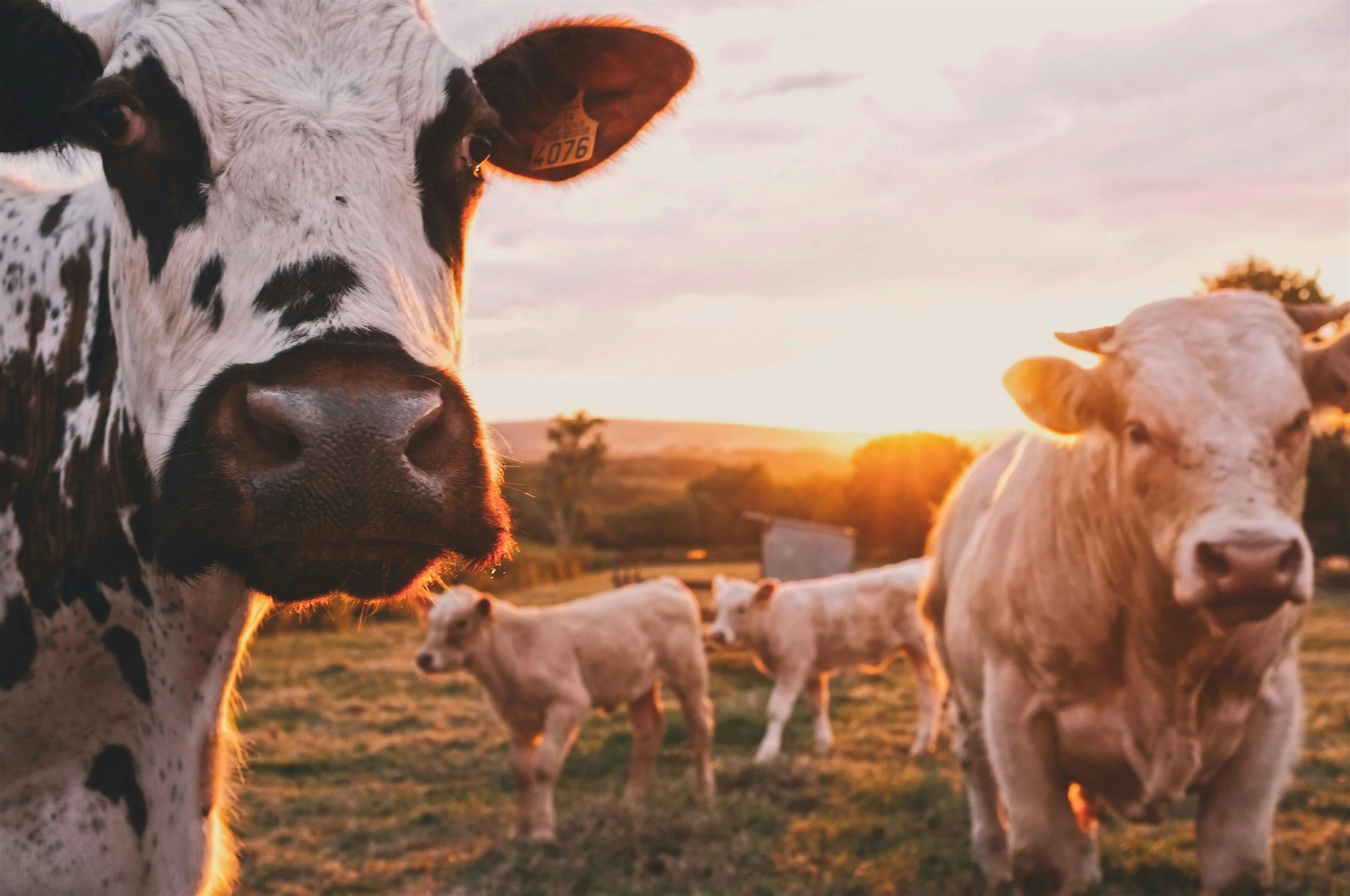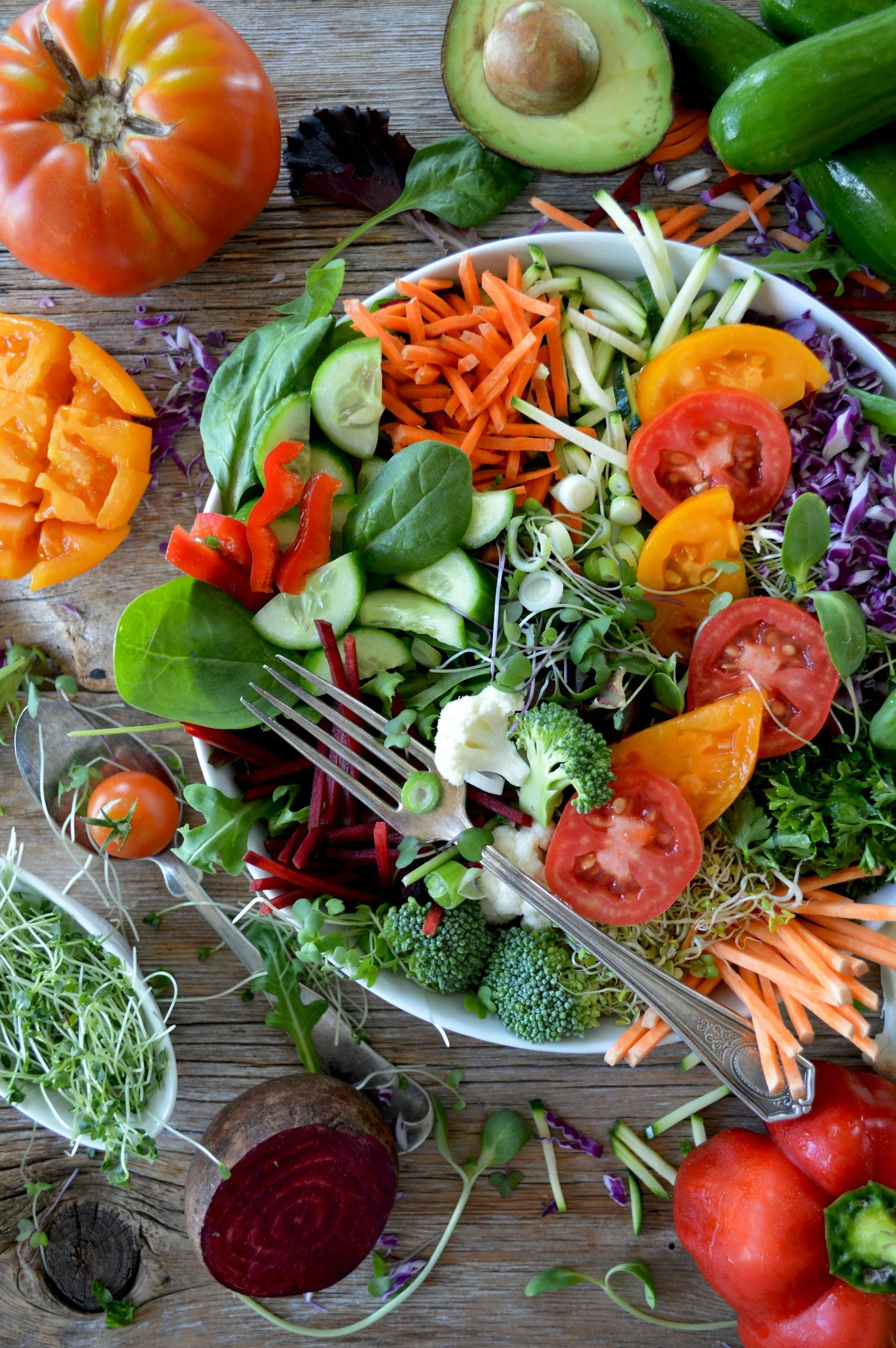Think Meat is the Best Choice? Let’s Talk.
Meat focused diets are currently in the spotlight. Across social media, influencers are promoting eating styles such as the carnivore diet and beef tallow cooking as shortcuts to better health, increased energy, and faster weight loss. These trends oftenframe meat as a miracle food, suggesting that eliminating plant based foods is the key to physical and mental wellness.
But how accurate are these claims?
Diets that rely heavily on animal products, especially red and processed meats, are linked to a higher risk of heart disease, certain cancers, type two diabetes, and chronic inflammation. While, diets centered around whole plant based foods are associated with improved cardiovascular health, better digestion, reduced inflammation, and long term protection against many chronic illnesses.
Before embracing the latest meat heavy trend, it is important to examine the full picture.
Beef Tallow: Superfood or Saturated Fat Trap?
Beef tallow is being promoted as a clean fat and even used as skincare. But is beef tallow healthy?
According to the American Heart Association, beef tallow is high in saturated fat, which raises LDL cholesterol and increases the risk of heart disease and stroke.
Healthier options include unsaturated plant based fats like:
• Olive oil
• Avocados
• Nuts and seeds
These fats are linked to reduced inflammation, improved heart health, and better metabolic function
Carnivore Diet Risks: What Happens When You Cut Out Plants?
The carnivore diet excludes all plant based foods and is marketed as a cure all for gut health, autoimmune disorders, and even mental clarity. Nutrition experts warn that eliminating fiber and phytonutrients from your diet can cause:
• Gut microbiome imbalance
• Constipation
• Nutrient deficiencies
• Increased risk of colon cancer and heart disease
Diets lacking in fiber negatively affect gut health and increase inflammation. The National Institutes of Health also emphasize that fiber is essential for blood sugar regulation, digestion, and immune health.
Does a Meat Based Diet Give You More Energy and Strength?
One common claim is that meat based diets fuel strength, energy, and muscle growth better than plant based options. But studies suggest otherwise.
While meat provides protein, plant based diets offer complete nutrition with added benefits:
• Stable energy from complex carbohydrates
• Reduced inflammation from antioxidants
• Faster recovery after workouts
• Gut health support from dietary fiber
Research in the Journal of the International Society of Sports Nutrition found that plant based athletes perform just as well or better than those on meat heavy diets.
Is Eating Meat the Most Natural Diet for Humans?
Supporters of high meat diets often argue that it's the natural human diet based on early human eating patterns. But anthropological evidence suggests our ancestors consumed mostly plants and hunted when necessary. Early humans had diverse diets rich in fruits, vegetables, nuts, seeds, and grains, not just meat. Today’s meat is very different from wild game. Most modern meat comes from factory farms, where animals are fed unnatural diets and treated with antibiotics and hormones. The World Health Organization has even classified processed meats as a Group 1 carcinogen, linking them to increased colorectal cancer risk.
Plant Based Diet Benefits: What Happens When You Reduce Meat?
While meat based diets may offer short term weight loss, the long term health benefits of a plant based diet are well documented. Studies show that plant based nutrition can:
• Lower blood pressure and cholesterol
• Improve insulin sensitivity
• Support gut health
• Reduce the risk of heart disease, diabetes, and some cancers
A well planned vegan or vegetarian diet provides all essential nutrients, protein included, without the downsides of saturated fat and cholesterol. The Academy of Nutrition and Dietetics affirms that plant based diets are suitable for all life stages.
Try a Plant Based Diet for 30 Days
You don’t have to give up meat forever. Trying a plant based diet for 30 days can help you experience the difference firsthand. Many people report:
• More energy
• Better digestion
• Clearer skin
• Reduced joint pain
• Better sleep
• Stronger workouts
Even small changes like reducing red meat or switching to plant based protein a few times per week can make a big impact.
Don’t Follow Trends Without the Facts
Meat based diets may be popular online, but evidence shows they can increase your risk of chronic illness when followed long term. Meanwhile, plant based diets are backed by decades of peer reviewed research showing improved health, longevity, and sustainability.
If you're curious, explore plant based alternatives for yourself. You might be surprised by what you discover about your health, your energy, and your future.
Try our 30-Day Plant-Based Challenge and see how easy and delicious it is to get all the protein you need!
Sign up for our 30-Day Plant-Powered challenge to receive free advice, recipes and support straight to your inbox for an entire month.
Is Plant Protein Complete?
You may have heard that animal proteins are "complete" while plant proteins are not. The truth? Many plant-based foods contain all essential amino acids, and eating a varied plant-based diet ensures you get everything you need. Plus, your body stores amino acids, so you don’t need every one at every meal!
Plant Protein vs. Animal Protein: The Health Benefits
Not only does plant protein meet your needs, but it also comes with health perks:
✔ Lower risk of heart disease
✔ Lower cholesterol & blood pressure
✔ Better digestion & gut health
✔ Reduced inflammation & cancer risk
So, Do Vegans Get Enough Protein?
Absolutely! With plenty of plant-based protein sources, vegans can thrive on a diet that is kind to animals, the planet, and your health.
Top Plant-Based Protein Sources
🥦 Legumes & Beans
Lentils – 18g per cup
Chickpeas – 15g per cup
Black beans – 15g per cup
Edamame – 17g per cup
🌱 Tofu, Tempeh & Seitan
Firm tofu – 10g per ½ cup
Tempeh – 21g per ½ cup
Seitan – 21g per 3 oz
🌾 Whole Grains
Quinoa – 8g per cup
Oats – 6g per ½ cup
Brown rice – 5g per cup
🥜 Nuts & Seeds
Almonds – 6g per ounce
Chia seeds – 5g per ounce
Hemp seeds – 9g per ounce
Peanut butter – 8g per 2 tbsp
🥬 Vegetables (Yes, Even Veggies Have Protein!)
Spinach – 5g per cup
Broccoli – 4g per cup
Brussels sprouts – 4g per cup
💪 Top Vegan Protein Powders
Pea Protein – ~20-25g per serving
Hemp Protein – ~15g per serving
Soy Protein – ~20-25g per serving
Blended Plant Protein (e.g., pea, rice, hemp mix) – ~20-25g per serving
How It Works!
Receive Daily Support in Your Inbox:
From tomorrow, you'll receive emails from our founder Elizabeth Novogratz for 30 days, packed with tips, plant-powered recipes, and inspiration to keep you motivated throughout the entire challenge.
Become Part of a Community:
Join our vibrant community of participants, share your experiences, and connect with like-minded individuals on this transformative journey. Our team will also be available to answer your questions and provide guidance every step of the way.
Elizabeth Novogratz, Species Unite Founder
A Message from Our Founder
Hi, I’m Elizabeth,
When I first made the switch to a plant-powered lifestyle, I was surprised at how expansive it felt. That might sound weird but my expectations were that it’d feel a little limiting.
Not only did I feel better (and kinder), my skin started to glow, I got stronger, I ran faster, I started cooking (sometimes), and a whole new world of options opened up to me, some that I had no idea even existed. Not only in the food world, but fashion as well. My wardrobe got way more interesting and I fell in love with the creators behind these innovations. In general, life got more fun.
That's why I'm excited to invite you to take part in our 30-Day Plant-Powered Challenge, where you’ll discover everything you need to become a well-fed, stylish animal-lover.







